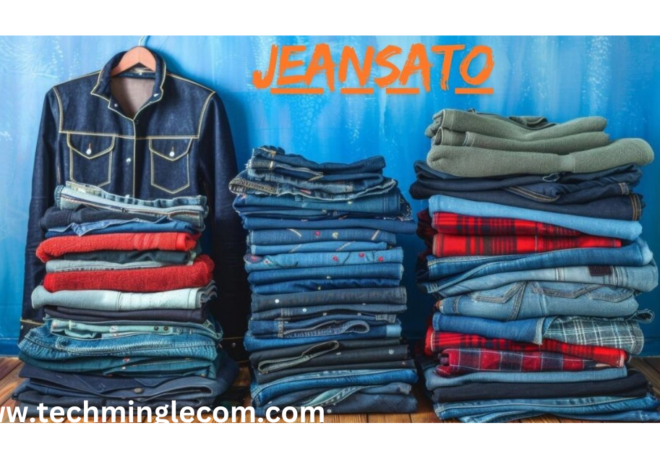
Fashion Brand Company:100% Evolution and Innovative Marketing
Introduction to Fashion Brand Company
Fashion Brand Company goes beyond mere clothing; it embodies identity, culture, and creativity. As such, fashion brands hold a significant place in our lives. They influence how we dress, how we perceive ourselves, and even how we are perceived by others. But what makes a fashion brand successful? Let’s delve into the fascinating world of fashion brands and uncover the secrets behind their success.
The Evolution of Fashion Brand Company
Early Beginnings of Fashion Brand Company
Fashion brands have come a long way from their humble beginnings. Initially, clothing was handmade and often customized for the wearer. It wasn’t until the late 19th century that branded fashion began to take shape, with the rise of department stores and ready-to-wear clothing.
The Industrial Revolution and Fashion
The Industrial Revolution played a pivotal role in the evolution of fashion brand companies. Mass production techniques allowed clothing to be produced on a larger scale, making fashion more accessible to the masses. This period also saw the emergence of fashion houses in Paris, which laid the foundation for modern fashion branding.
The Rise of Designer Brands
The 20th century witnessed the rise of iconic designer brands like Chanel, Dior, and Gucci. These brands not only offered high-quality products but also created a unique brand identity that resonated with consumers worldwide. Their success was driven by innovative designs, consistent brand messaging, and effective marketing strategies.
The Anatomy of a Successful Fashion Brand

Unique Brand Identity
A successful fashion brand company starts with a unique brand identity. This includes a distinctive logo, brand colors, and a memorable tagline. But it’s not just about visuals; a brand’s identity also encompasses its values, mission, and the story it tells.
High-Quality Products
Quality is non-negotiable in the fashion industry. Consumers expect fashion brands to deliver products that are well-made, durable, and stylish. High-quality products build trust and loyalty, encouraging repeat purchases and positive word-of-mouth.
Consistent Brand Messaging
Consistency is key in branding. Successful fashion brands maintain a consistent tone, style, and message across all channels, whether it’s their website, social media, or physical stores. This consistency helps to reinforce the brand’s identity and values in the minds of consumers.
Key Components of Building a Fashion Brand

Market Research
Understanding the market is the first step in building a successful fashion brand. This involves analyzing industry trends, studying competitors, and identifying gaps in the market. Market research provides valuable insights that inform the brand’s strategy and positioning.
Brand Concept and Design in Fashion Brand Company
Once you have a clear understanding of the market, it’s time to develop your brand concept and design. This includes creating a compelling brand story, designing a unique logo, and developing a cohesive visual identity. The goal is to create a brand that stands out and resonates with your target audience.
Target Audience Identification
Identifying your target audience is crucial for any fashion brand company. This entails understanding the demographics, preferences, and behaviors of your potential customers. A well-defined target audience allows you to tailor your products, marketing, and messaging to meet their needs and desires.
Brand Positioning
Brand positioning is about defining how your brand is perceived in the market relative to competitors. It’s about finding a unique space that differentiates your brand and appeals to your target audience. Effective brand positioning can be achieved through a combination of unique product offerings, compelling brand stories, and strategic marketing.
The Role of Marketing in Fashion
Traditional Marketing Techniques in Fashion Brand Company
Traditional marketing techniques, such as print advertising, TV commercials, and billboards, still play a significant role in the fashion industry. These methods can help to build brand awareness and reach a wide audience. However, they can be costly and may not always deliver the desired results.
Digital Marketing and Social Media
In today’s digital age, online marketing is essential for fashion brands. Social media platforms like Instagram, Facebook, and TikTok offer powerful tools for reaching and engaging with consumers. Digital marketing strategies, such as content marketing, email campaigns, and SEO, can drive traffic, increase sales, and build brand loyalty.
Influencer Partnerships
Collaborating with influencers is a popular marketing strategy for fashion brands. Influencers have a dedicated following and can help to promote your brand to a wider audience. These partnerships can take many forms, from sponsored posts and product reviews to brand ambassadorships and collaborations.
Sustainable Fashion Brand company
The Importance of Sustainability
Sustainability is growing in importance within the fashion industry.. Consumers are more conscious of the environmental impact of their purchases and are seeking out brands that prioritize ethical and sustainable practices. This includes using eco-friendly materials, reducing waste, and ensuring fair labor practices.
Successful Sustainable Brands
Brands like Patagonia, Stella McCartney, and Reformation are leading the way in sustainable fashion. These brands have built their identity around sustainability, offering products that are not only stylish but also environmentally friendly. Their success demonstrates that consumers are willing to support brands that align with their values.
Challenges and Solutions in Sustainable Fashion
Sustainable fashion comes with its own set of challenges. These include higher production costs, supply chain complexities, and the need for consumer education. However, these challenges can be addressed through innovative solutions, such as using recycled materials, adopting new technologies, and creating transparency in the supply chain.
Fashion Brand Company Case Studies
Iconic Fashion Brand Companies and Their Journeys
Studying the journeys of iconic fashion brands can provide valuable insights. Brands like Louis Vuitton, Nike, and Zara have navigated the ever-changing fashion landscape with innovation and adaptability. Their stories highlight the importance of staying true to your brand identity while continuously evolving to meet consumer demands.
Lessons Learned from Successful Fashion Brand Company
Successful fashion brands share common traits: a clear brand vision, a focus on quality, effective marketing, and the ability to adapt to changing trends. By learning from these brands, new and emerging fashion brands can develop strategies that drive long-term success.
The Future of Fashion Brands

Technological Innovations in Fashion Brand Company
Technology is set to revolutionize the fashion brand company. Innovations like virtual try-ons, 3D printing, and AI-driven design are transforming how fashion brands operate and engage with consumers. These technologies offer new opportunities for customization, sustainability, and enhanced shopping experiences.
Changing Consumer Preferences
Consumer preferences are constantly evolving. Today’s consumers value authenticity, sustainability, and personalization. Fashion brand company need to stay attuned to these changing preferences and adapt their strategies accordingly. This may involve offering more sustainable products, personalized shopping experiences, and transparent communication.
Predictions for the Next Decade
The next decade is likely to see continued growth in sustainable fashion, increased use of technology, and a greater emphasis on inclusivity and diversity. Fashion brands that embrace these trends and remain adaptable will be well-positioned for success.
Conclusion
Building a successful fashion brand company requires a combination of creativity, strategy, and adaptability. From developing a unique brand identity to leveraging digital marketing and embracing sustainability, there are many factors that contribute to a brand’s success. As the fashion industry continues to evolve, staying attuned to consumer preferences and technological advancements will be key. By learning from successful brands and continuously innovating, new fashion brands can carve out their own niche in this dynamic industry.
FAQs
What is the most important factor in building a fashion brand company?
The most important factor in building a fashion brand is developing a unique brand identity that resonates with your target audience. This includes a distinctive logo, a compelling brand story, and consistent messaging.
How can small businesses compete with established fashion brand companies?
Small businesses can compete with established fashion brands by focusing on niche markets, offering unique products, and leveraging digital marketing to reach and engage with their target audience.
What role does social media play in fashion brand companies?
Social media plays a crucial role in fashion branding by providing a platform for brands to showcase their products, connect with consumers, and build a loyal following. It also offers opportunities for influencer collaborations and user-generated content.
How do fashion brand companies stay relevant in a competitive market?
Fashion brands stay relevant by continuously innovating, staying attuned to consumer preferences, and adapting their strategies to meet changing trends. This includes offering new products, embracing sustainability, and leveraging technology.
What are some of the emerging trends in the fashion industry?
Emerging trends in the fashion industry include sustainable fashion, technological innovations like virtual try-ons and AI-driven design, and a greater emphasis on inclusivity and diversity. Brands that embrace these trends are likely to thrive in the future.


